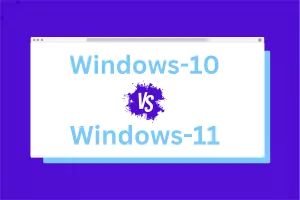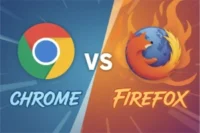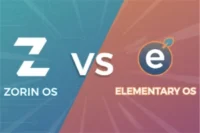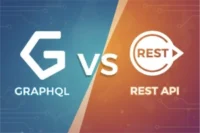SEM vs SMM: Differences Between SEM and SMM
Published: 24 Nov 2024
In today’s digital marketing world, SEM (Search Engine Marketing) and SMM (Social Media Marketing) are two major strategies that businesses use to reach their audience. Both methods focus on increasing visibility, but they operate in very different ways.
Understanding these differences is key to making informed decisions about where to invest your time and resources for marketing your brand or business.

What is SEM?
- SEM stands for Search Engine Marketing.
- It involves using paid ads on search engines like Google or Bing.
- SEM helps businesses appear on the top of search engine result pages (SERPs).
- Examples of SEM include Google Ads and Bing Ads.
- SEM focuses on targeting users who are actively searching for specific information, products, or services.
What is SMM?
- SMM stands for Social Media Marketing.
- It refers to promoting a brand, product, or service through social media platforms like Facebook, Instagram, Twitter, LinkedIn, etc.
- SMM uses both organic and paid methods to engage users.
- Examples of SMM include running Facebook Ads or creating engaging Instagram stories.
- SMM targets users based on their interests, behavior, and interactions on social platforms.
SEM vs SMM: Key Comparison
Here are some key Comparison between SEM and SMM:
Purpose and Goals
SEM: The primary goal of SEM is to drive traffic to a website by targeting users who are actively searching for specific products, services, or information. It focuses on immediate visibility in search engine results and generating leads or sales.

SMM: The goal of SMM is to create brand awareness, build a community, and engage users through social interactions. It raise relationships, improving brand loyalty, and encouraging participation from users.
Platforms Used
SEM: SEM is executed on search engines like Google, Bing, and Yahoo. These platforms provide tools like Google Ads or Bing Ads to create and manage campaigns targeting search engine users.
SMM: SMM operates on social media platforms like Facebook, Instagram, Twitter, LinkedIn, TikTok, and others. It leverages these platforms to reach users where they spend most of their online time.
Paid vs Organic Strategies
SEM: SEM mostly depends on paid strategies, such as Pay-Per-Click (PPC) ads, where advertisers pay for each click on their ad. However, SEO (organic optimization) is also a component of SEM to enhance visibility in unpaid search results.
SMM: SMM uses both paid and organic strategies. Paid methods include social media ads, while organic strategies involve creating engaging posts, stories, and videos to build an audience naturally.
Targeting Methods
SEM: Targets users based on the keywords they search for. Ads appear to users actively looking for information related to the business’s products or services, making it intent-driven marketing.

SMM: Targets users based on their interests, demographics, behaviors, and social media activities. Ads or content are shown to users who may not necessarily be searching for a product but fit the desired audience profile.
Audience Engagement
SEM: SEM has minimal direct interaction with users. Its focus is on generating clicks and conversions rather than engagement like comments or shares.
SMM: SMM encourages active engagement through likes, comments, shares, and direct messages. It’s a two-way communication channel that allows brands to interact with their audience.
SEM Strategies
Let’s discuss some Search Engine Marketing Strategies:
Keyword Research and Targeting:
- Identifying the right keywords to bid on in search engine ads.
Paid Ads (PPC):
- Paying for every click on your ad in search engines, such as Google Ads.

Search Engine Optimization (SEO):
- Improving organic rankings through optimizing content, using keywords, and improving website structure.
Ad Copy and Landing Page Optimization:
- Creating compelling ads and matching landing pages to increase conversions.
SMM Strategies
Let’s talk about Social Media Marketing Strategies:
Content Creation and Curation:
- Developing engaging content that rings with your audience and builds your brand.
Influencer Marketing:
- Collaborating with social media influencers to promote your products or services.

Paid Social Media Ads:
- Running targeted ads on platforms like Facebook or Instagram to reach your audience.
Community Building and Engagement:
- Creating and maintaining a loyal following by responding to comments, sharing user-generated content, and building a community around your brand.
Cost Differences
Here we discuss the cost differences between SEM & SMM:
Cost of SEM:
- SEM can be expensive due to the competitive nature of keyword bidding and PPC models.
Cost of SMM:
- SMM can be more cost-effective, especially if you rely on organic growth, but paid social ads can also be pricey.
ROI Comparison:
- SEM: SEM sometimes gives quicker results but at a higher cost.
- SMM: SMM typically takes longer but has the potential for more comfort engagement at a lower cost.
Time and Effort
Let’s discuss about Time and Effort of SEM & SMM:
Time Investment for SEM:
- SEM can show quicker results, but requires constant monitoring and adjustment to remain effective.
Time Investment for SMM:
- SMM takes longer to show results, especially with organic strategies, but can build lasting relationships and brand loyalty.
Long-term vs Short-term Results:
- SEM is great for short-term traffic boosts.
- SMM is more suitable for long-term brand building.
Measurement of Success
Here we talk about Measurement of success of SEM & SMM:
Measuring SEM Success:
- Track criteria like click-through rate (CTR), cost per click (CPC), and conversions.

Measuring SMM Success:
- Focus on engagement criteria like likes, shares, comments, and follower growth.
Which One is Better for Your Business?
Now! Discuss that which one is better for your business:
When to Use SEM:
- If you need quick traffic and have the budget for paid ads, SEM is a great choice.
When to Use SMM:
- If you’re looking to build a community, raise engagement, and grow brand awareness, SMM is more effective.
Factors to Consider:
- Budget, time, audience, and marketing goals should influence whether you prioritize SEM or SMM.
Conclusion
In the world of digital marketing, both SEM and SMM have their unique advantages. SEM is ideal for businesses looking for quick, targeted results with a higher budget, while SMM focuses on building brand loyalty and long-term engagement.
Choosing between the two depends on your marketing goals, resources, and the nature of your business. Often, a combination of both strategies yields the best results.
FAQs about SEM & SMM:
Here are some of the most FAQs related to SEM & SMM:
SEM aims to increase visibility in search engine results through paid ads.
SMM uses platforms like Facebook, Instagram, Twitter, and LinkedIn.
Generally, yes, SEM can be more expensive because it sometime involves paid ads.
SMM usually takes longer to show results compared to SEM.
SMM is more suited for long-term brand building and engagement.
PPC (Pay-per-click) is a model where advertisers pay for each click on their ads.
Yes, SMM sometime includes collaborations with influencers to promote products.
Yes, SEM strategies sometime involve optimizing content for better SEO rankings.
Organic marketing refers to unpaid strategies like regular posting and engaging with followers.
Startups with limited budgets may benefit more from SMM organic growth potential.

- Be Respectful
- Stay Relevant
- Stay Positive
- True Feedback
- Encourage Discussion
- Avoid Spamming
- No Fake News
- Don't Copy-Paste
- No Personal Attacks

- Be Respectful
- Stay Relevant
- Stay Positive
- True Feedback
- Encourage Discussion
- Avoid Spamming
- No Fake News
- Don't Copy-Paste
- No Personal Attacks





